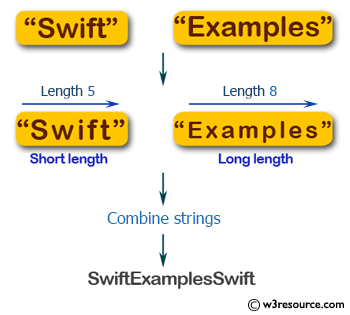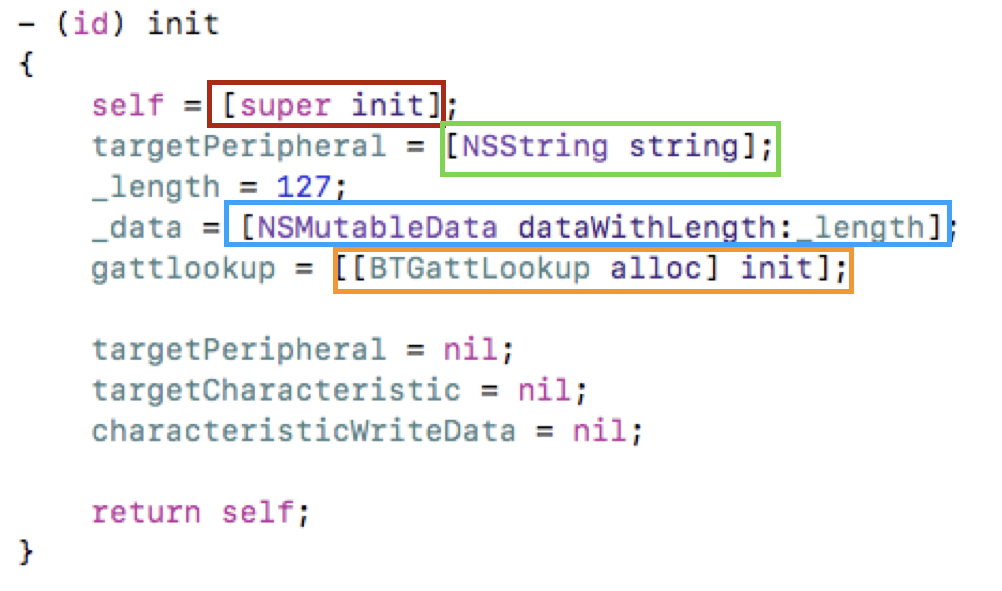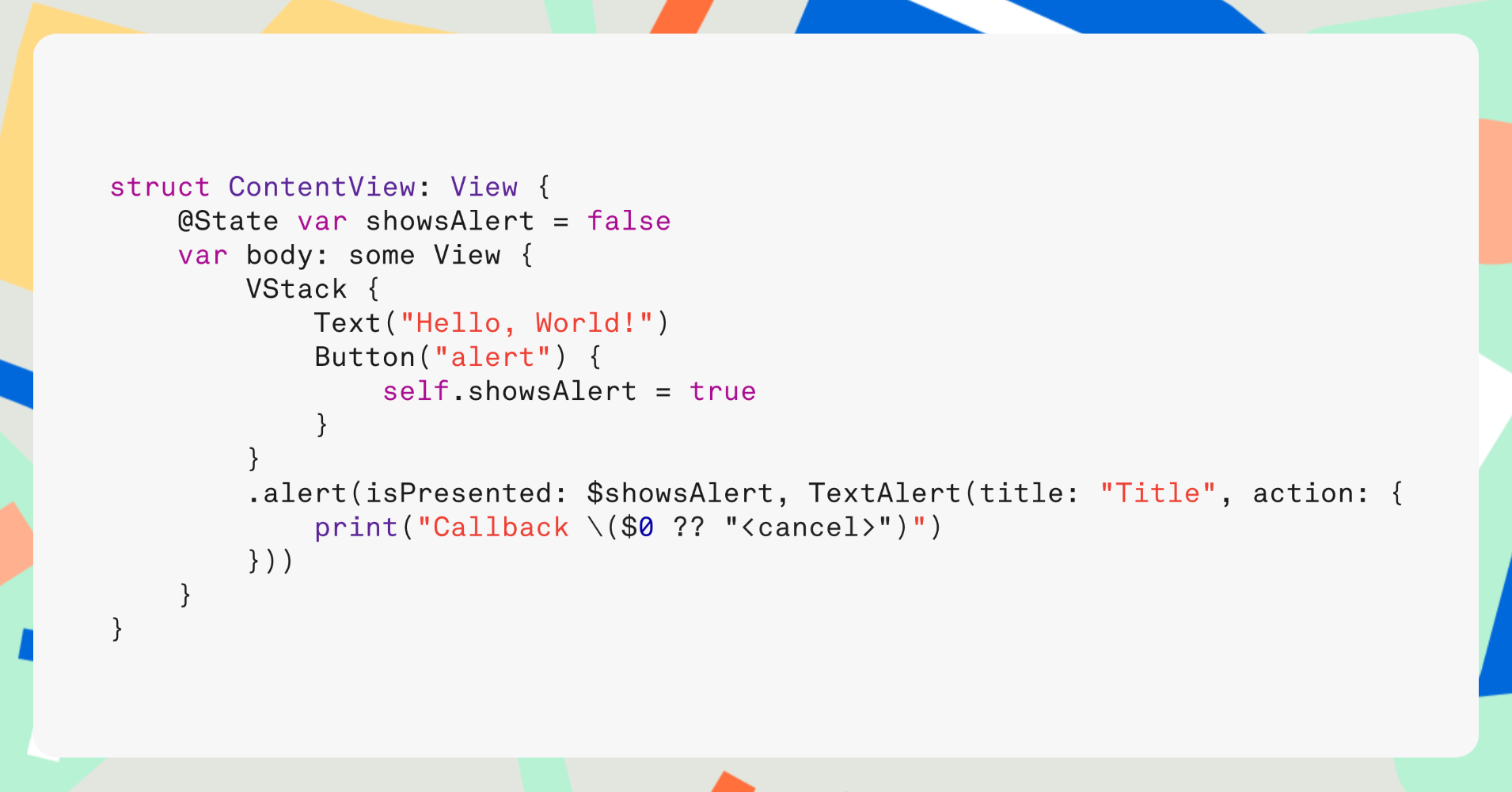
("User \(username) logged in") Setting the right privacy level With the new APIs you can log as you’re used to with print(_:) statements: With the old API, it isn’t possible to use string interpolation which makes it harder to log values. ("View did load!") Removed restriction of static stringsĪ big improvements is the support for string interpolation and string literals. The differences are visible when trying to log messages as you now have to use methods like info(_:) and debug(_:): Static let viewCycle = Logger(subsystem: subsystem, category: "viewcycle") The initialiser matches the one from OSLog: One of the differences is using the newly introduced Logger instance. However, if you’re supporting iOS 14 and up you might want to go with the improved APIs as they look nicer and come with a few new features.
#Objc and swift share c string code
The APIs look much more similar to popular frameworks like CocoaLumberjack and are better aligned with other Swift APIs.Īll previous covered explanations in this blogpost still apply and the code examples are still working on iOS 14. WWDC 2020 introduced improved APIs that make it even easier to work with OSLog. Saved search patterns in the sub-header to quickly filter your OSLog implementation Improved APIs in iOS 14 and up Simulators and connected devices will show up in this list. Start by selecting your device on the left in the devices menu. Using the Console.app in combination with OSLog is recommended to get the most out of this way of logging. The username is logged as instead which prevents your data from being readable by anyone inside the logs. However, opening the app while no debugger is attached will show the following output in the Console.app.ĭebug 18:58:40.532132 +0100 LogExample User Antoine logged inĭebug 18:58:40.532201 +0100 LogExample User logged in The Xcode console and the Console.app will show the data as normal when a debugger is attached. Os_log("User logged in", log: erFlow, type. Private data can be logged using and public data with the following example, we’re logging the username in both public and private to show the differences. Parameters can be logged in two ways depending on the privacy level of the log.

Os_log("Failed loading the data", log: OSLog.data, type. You can pass in a log level as a type parameter: fault: Fault-level messages are intended for capturing system-level or multi-process errors only.error: Error-level messages are intended for reporting critical errors and failures.debug: Debug-level messages are intended for use in a development environment while actively debugging.info: Call this function to capture information that may be helpful, but isn’t essential, for troubleshooting.It’s better to be specific by using the other log levels. default (notice): The default log level, which is not really telling anything about the logging.A log type controls the conditions under which a message should be logged and is another way of filtering in the Console app. The OSLog API requires to pass in an OSLogType which can be used to automatically send messages at the appropriate level.


Os_log("View did load!", log: OSLog.viewCycle, type. In this case, we have a view cycle category, which we can use to log in our app: This extension uses the bundle identifier of the app and creates a static instance for each category. Static let viewCycle = OSLog(subsystem: subsystem, category: "viewcycle") / Logs the view cycles like viewDidLoad. Note: if you’re using iOS 14 and up, there are new APIs available explained further down this post.

By defining a small extension you can easily adopt multiple categories. OSLog makes it possible to log per category, which can be used to filter logs using the Console app.
#Objc and swift share c string free
Start setting goals for your team based on industry-recognized benchmarks by downloading our free report. Unlock the results: Mobile DevOps Assessment 2023 What happens when you survey 1600+ Mobile DevOps teams? You get 5 key Mobile DevOps benchmarks that can guide mobile teams to high performance.


 0 kommentar(er)
0 kommentar(er)
